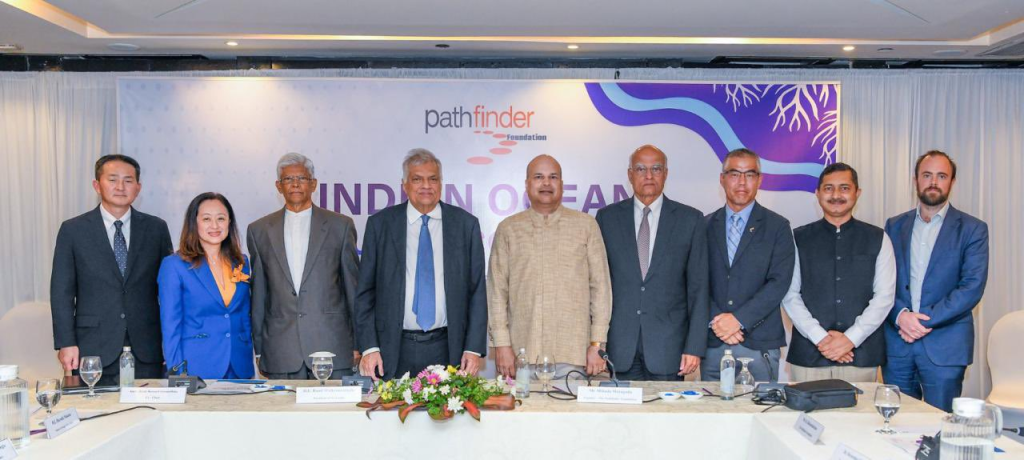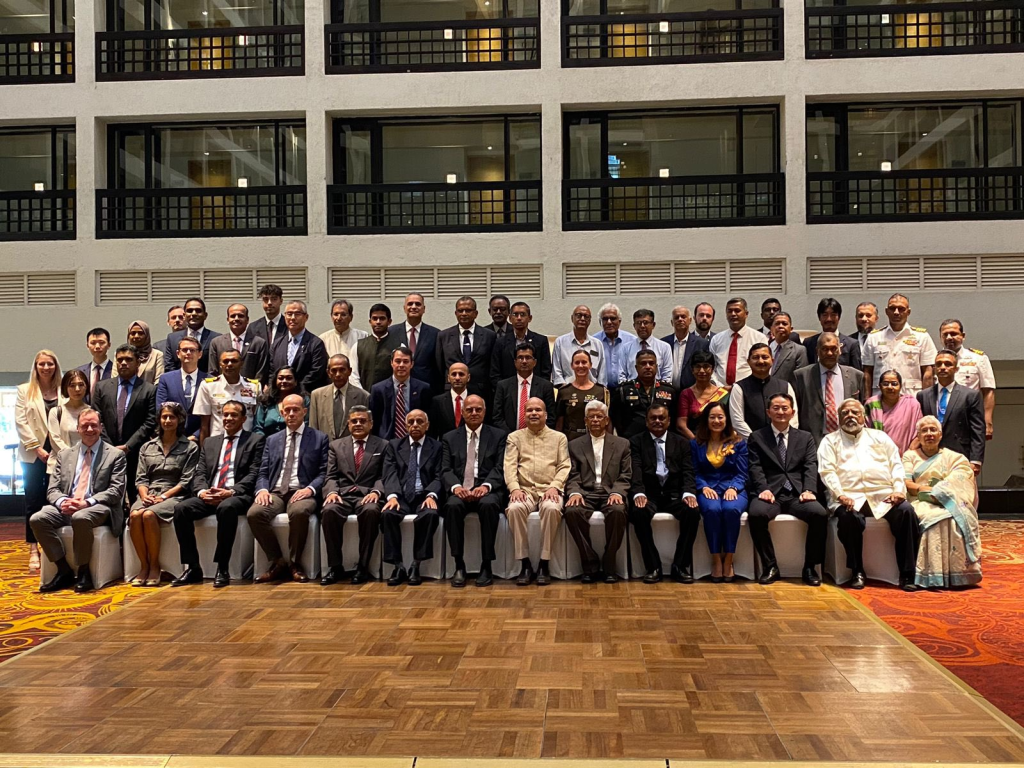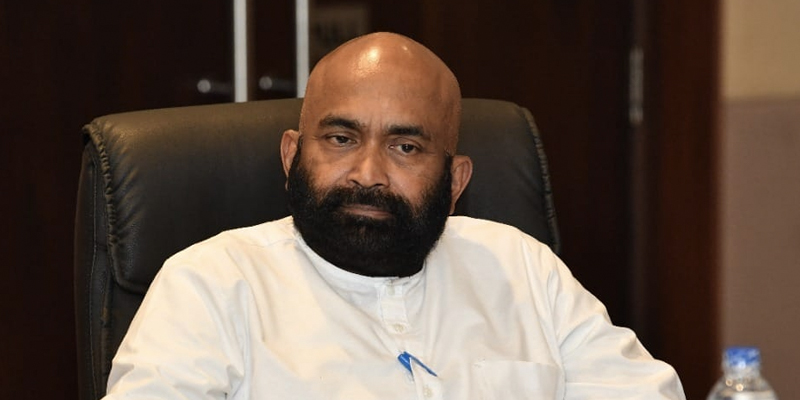In a recent address at the Pathfinder Foundation’s Indian Ocean Security Conference, U.S. Ambassador Julie J. Chung highlighted Sri Lanka’s significant contribution to global security through its participation in Operation Prosperity Guardian. The Ambassador commended Sri Lanka for its proactive role in addressing maritime challenges and safeguarding the freedom of navigation in key waterways.
Operation Prosperity Guardian, a multinational coalition effort, saw the Sri Lanka Navy deploying one of the donated U.S. Coast Guard Cutters to the Red Sea, Gulf of Aden, and Arabian Sea. The mission aimed to protect commercial ship traffic from potential Houthi attacks, demonstrating Sri Lanka’s commitment to securing the global supply chain.
Ambassador Chung expressed gratitude for Sri Lanka’s leadership in this operation during recent visits by U.S. Deputy Secretary of State Richard Verma and other dignitaries. The possible donation of fourth Coast Guard Cutters to the Sri Lanka Navy will further emphasizes the United States’ commitment to strengthening Sri Lanka’s capacity to address key maritime challenges, including piracy, drug smuggling, human trafficking, and illegal fishing.
Sri Lanka Navy’s Key Role in Operation Prosperity Guardian Recognized at Indian Ocean Security Conference
Full Speech
Good morning. His excellency President Wickremesinghe, Deputy Director-General Makoto, my fellow diplomatic colleagues, distinguished panelists and participants from think tanks and academia, it is a privilege and honor for me to take part in the opening of this third Indian Ocean Security Conference. A special thanks to the Pathfinder Foundation and co-chair Ambassadors Goonetilleke and Menon for their continued leadership in fostering the ongoing constructive dialogue on peace and security across the Indian Ocean region, and to Ambassador Milinda Moragoda for dedication. Before I begin, I would like to challenge Pathfinder and the organizers: when I looked at the agenda for this conference, I noticed I’m the only woman speaking among the panelists and moderators. I know there are hundreds of qualified female experts in international affairs who would love to join this discussion so I urge you to look at gender diversity in next year’s conference participants.
I had the pleasure of speaking at the second iteration of this very conference back in March 2022 not long after I first arrived in my very first public speech as ambassador. At that time, I said our vision for the Indo-Pacific recognizes that much of the planet’s future will be based on what happens in this region. And I also said then this is why Sri Lanka, located at the heart of the Indo-Pacific, can act now to seize a leading role in this future. Two years later, I believe this affirmation more than ever. The President said Sri Lanka does not want to be a battleground for great power competition in his remarks just now. In my opinion, the question is not to ask whether Sri Lanka is a “battleground” because that makes Sri Lanka seem to take on a passive role, but rather how can Sri Lanka best assert its identity and sovereignty to shape its future destiny and the region.
It was at that same time two years ago that the United States launched its Indo-Pacific Strategy, which focuses on promoting a free and open Indo-Pacific that is connected, prosperous, secure, and resilient. The IPS seeks to galvanize bilateral and multilateral relationships across the Indo-Pacific region. For Sri Lanka, that means of course focusing on its immediate Indian Ocean neighbors and environs. But why limit yourself there? It also means building or expanding connections within and beyond the Indian Ocean region, helping to facilitate linkages and relationships with distant partners as well. Oceans see no borders and it only makes sense for Sri Lanka to broaden its strategic influence to encompass both the Indian and Pacific Oceans. That will be a core theme of my remarks today.
And we know that some of these Indo-Pacific linkages already exist for Sri Lanka. I recently helped launch a U.S. government-funded ports capacity building program by the Colombo Plan. It will not only send experts to study ports in the United States but help build cyber security capabilities, give the Sri Lanka Ports Authority the know-how and technical expertise to innovate port operations, and expose SLPA staff to the latest international standards and best practices. Just this week we are hosting a cyber security workshop that will build upon these efforts. This will help sure valuable infrastructure from cyber and ransomware attacks, important for all our national securities. The Colombo Plan, founded and headquartered here in Colombo, is a decades-old development platform with member states from across East Asia, South Asia, and the Middle East and as far west as the United States and Chile.
In addition, Sri Lanka is the current chair of IORA, the Indian Ocean Rim Association. IORA is the only diplomatic ministerial level platform in the Indian Ocean Region and includes Dialogue Partners from Europe and East Asia. As the sitting chair, Sri Lanka is in a position to drive interregional cooperation on economic development and political dialogue for the next two years. Needless to say, Sri Lanka is already playing that outsized role in helping to shape global policy.
And acknowledging the value of being a part of the larger global community, Sri Lanka is currently pursuing membership in the Regional Comprehensive Economic Partnership or RCEP. This move matters to Sri Lanka because it would enhance economic ties and make it easier to trade goods and services with RCEP’s Asia-Pacific member countries. But more importantly by doing this, Sri Lanka strengthens its role as a bridge between nations in the Indian Ocean and Pacific Ocean regions, and the United States see this as a win-win for economic growth and regional stability.
You have also gathered here today to discuss Indian Ocean security. The United States continues to play an active role in strengthening Sri Lanka’s capacity to protect its territorial waters. We have donated three former U.S. Coast Guard Cutters to Sri Lanka Navy and have provided a variety of other security assistance. Just last Friday, we had the pleasure of welcoming U.S. Deputy Secretary of State Richard Verma, who announced the planned donation of a fourth Coast Guard Cutter to the Sri Lanka Navy. This demonstrates our continued commitment to bolster Sri Lanka’s capacity to advance freedom of navigation by addressing key maritime challenges including piracy, drug smuggling, human trafficking, and illegal, unreported and unregulated fishing.
We recently witnessed Sri Lanka addressing global challenges head on and broadening its role on the world stage by sending one of those donated cutters to support Operation Prosperity Guardian. The Sri Lanka Navy joined a multinational coalition of naval vessels in the Red Sea, Gulf of Aden, and Arabian Sea from over a dozen countries to help safeguard the freedom of navigation and protect the busy sea lanes of commercial ship traffic from Houthi attacks. This is a clear demonstration of Sri Lanka playing an active role in helping to secure the global supply chain that benefits both Sri Lanka and economies around the world. Thanking Sri Lanka for this leadership was an important message conveyed during the recent visits of U.S. Deputy Secretary of State Richard Verma, and others.
Another aspect of the IPS is to promote resiliency to 21st century transnational threats, which includes disruptions to global supply chains. Sri Lanka plays a vital role in facilitating the steady flow of goods as it hosts the only transshipment hub in South Asia. These supply chains represent the commercial lifelines for economies across the region and around the world. Not only is Sri Lanka contributing to the protection of those lifelines, but the Port of Colombo is facilitating that supply chain resilience by providing the storage and logistical movement of that essential cargo. The United States government, through $553 million in financing from the U.S. International Development Finance Corporation, is helping to further expand the Port of Colombo’s capacity by nearly 50 percent through the construction of the West Container Terminal. This Sri Lanka-India joint project will enhance Sri Lanka’s status on the world stage as the home of a vital transshipment hub essential the flow of global trade.
In addressing a different form of transnational threats, the strategy specifically recognizes that the Indo-Pacific is the epicenter of the climate crisis, but it is also essential to climate solutions. While the impacts of climate change know no boundaries, Sri Lanka and the rest of the island nations across the Indo-Pacific are disproportionately threatened by rising sea levels, increasing water temperatures, depleting fish populations, eroding coastlines, and erratic weather patterns. Sri Lanka and its fellow island states are fighting a common cause and must join forces to face these climate-related challenges together. The United States is committed to supporting countries across the Indo-Pacific in protecting the environment, reducing emissions, and accelerating clean energy.
Let me conclude by quoting President Biden on the IPS: “The future of each of our nations—and indeed the world—depends on a Free and Open Indo-Pacific enduring and flourishing in the decades ahead.’ It is clear Sri Lanka is positioned to seize a leading role as I had hoped two years ago, not play a passive role, and even expand upon it across the greater Indo-Pacific, and I can assure you, the United States stands in support of this island nation as it looks beyond the horizon of the Indian Ocean and forges greater ties in collaboration with the rest of the world.







